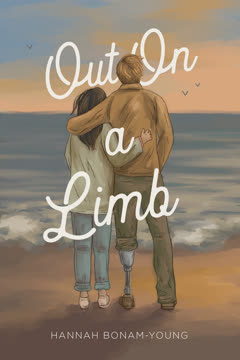Plot Summary
Windy Homecomings and Sibling Codes
Milo Kablukov, a charming, rootless artist, returns to Muskoka's small town of Baysville, Ontario, answering his brother Nik's mysterious "one-one-nine" sibling code—a lifelong pact for emergencies. He picks up his younger sister Nadia, their banter laced with old wounds and affection. Both are wary of returning to their family's orbit, haunted by a difficult childhood. Milo's van, Bertha, is as battered as his sense of belonging. The siblings' dynamic is a blend of teasing, protectiveness, and unspoken trauma. Milo's bisexuality and Nadia's tough exterior hint at lives lived on the margins, surviving through humor and loyalty. Their journey home is both literal and emotional, setting the stage for a story about family, obligation, and the hope for something more.
Caretaking and Forgotten Names
Prue Welch, a poet and caretaker, lives in the shadow of her mother Julia's early-onset Alzheimer's. Her world is colored by the vibrant home her mother once filled with art and warmth, now dimmed by illness. Prue's days are a cycle of caregiving, small-town routines, and stifled dreams. Her father Tom is loving but overwhelmed, and together they try to keep Julia's world gentle and familiar. Prue's identity is shaped by her mother's fading memory and her own fear of losing herself in the process. The chapter is heavy with nostalgia, grief, and the quiet heroism of those who love someone slipping away. Prue's resolve to keep her family together is both her strength and her burden.
First Encounters, First Sparks
Milo's first encounter with Prue is electric and awkward. He arrives at Welch's Gas and Grocer, seeking cigarettes for Nadia, but finds the store closed for a "wedding"—a ritual for Julia's confused mind. Prue, windswept and defensive, is immediately wary of Milo's flirtatious charm. Their banter is sharp, layered with mutual attraction and the weight of their respective responsibilities. The encounter is interrupted by Julia, who mistakes Milo for a stranger, her illness painfully apparent. Milo is shaken, recognizing his beloved former art teacher in Julia's vacant gaze. Prue's protective instincts flare, and Milo leaves, unsettled but intrigued. The moment is a collision of past and present, setting the tone for their complicated connection.
Family Ties and Brewing Plans
Milo and Nadia arrive at Nik's bustling home, greeted by a swarm of children and the chaos of family life. Nik and his wife Sef are expecting another baby, and the house is filled with warmth, noise, and unfinished business. Nadia's unresolved feelings for family friend Aleks simmer beneath the surface. Milo is conscripted into helping with Nik's dream project: opening a brewery in Baysville. The siblings' dynamic is tested as old resentments and new roles emerge. Milo's sense of rootlessness clashes with Nik's desire for stability. The brewery becomes a symbol of hope and healing—a place where the Kablukovs might finally build something lasting, even as their past threatens to pull them apart.
Ultimatums and Unspoken Grief
Prue's father delivers an ultimatum: she must find a life beyond caregiving, or Julia will be moved to a care home. The conversation is raw, filled with love, guilt, and the ache of impossible choices. Prue's identity is so entwined with her mother's care that the thought of separation feels like betrayal. Tom's own grief and exhaustion are palpable; he wants more for his daughter but cannot bear to lose his wife. The chapter explores the limits of devotion, the cost of self-sacrifice, and the ways families fracture under the weight of illness. Prue's resolve is tested, and the future feels uncertain, haunted by the specter of loss.
Apologies, Art, and Awkwardness
Milo, urged by Nik and Sef, returns to Welch's to apologize for the awkward encounter. He brings beer as a peace offering and is drawn into the Welch family's orbit. Tom welcomes him, and Milo's Russian heritage becomes a point of connection. Prue is reluctant but accepts his help in cleaning Julia's art studio. Their chemistry is undeniable, but both are guarded—Prue by her inexperience and Milo by his fear of attachment. As they work side by side, their banter shifts from antagonistic to playful, and the seeds of friendship (and something more) are sown. The studio, filled with Julia's unfinished canvases, becomes a space for healing and possibility.
Small Town, Big Chemistry
Milo and Prue's dynamic intensifies as they spend more time together. Their conversations are laced with innuendo, vulnerability, and the push-pull of attraction. Prue's inexperience is a source of both embarrassment and intrigue, while Milo's reputation as a wanderer and heartbreaker looms large. They negotiate the boundaries of friendship and desire, each afraid to risk more but unable to resist the pull. The small town setting amplifies their intimacy and isolation—everyone knows everyone, and secrets are hard to keep. Their connection is a lifeline, offering both escape and the terrifying prospect of real love.
Dancing Through the Darkness
After a difficult day, Milo finds Prue in the throes of anxiety and self-doubt. He coaxes her out of her spiral with music and dance, using ABBA as a balm for old wounds. Their shared vulnerability deepens their bond, and Milo's own trauma surfaces in the safety of Prue's presence. They confide in each other, sharing stories of pain and survival. The chapter is a testament to the power of small joys and the ways love can be both a refuge and a risk. Their friendship solidifies, but the undercurrent of longing remains, threatening to upend the fragile balance they've found.
Friendship, Lists, and Firsts
Prue, emboldened by Milo's patience and encouragement, creates a "No-Longer-a-Prude To-Do List"—a playful, vulnerable roadmap for exploring her sexuality. Milo becomes her guide, lover, and confidant, helping her navigate first kisses, intimacy, and pleasure. Their encounters are tender, funny, and deeply emotional, marked by consent and communication. As Prue checks off items on her list, she gains confidence and agency, while Milo confronts his own fears of attachment and worthiness. Their relationship becomes a space for healing and growth, challenging old narratives and opening the door to real love.
Secrets, Lies, and Forgiveness
The fragile peace is shattered when Prue discovers her father's cancer diagnosis—information Milo has known but kept secret at Tom's request. The revelation is a gut punch, fracturing trust and reopening old wounds. Prue feels betrayed by both men, her sense of agency and safety upended. Milo is devastated, caught between loyalty and love, desperate to make amends. The confrontation is raw and painful, forcing both to reckon with the limits of forgiveness and the cost of secrets. Prue retreats, Milo is left adrift, and the future of their relationship hangs in the balance.
Family Reckonings and Healing
Milo turns to his siblings, Nadia and Nik, for support. The Kablukovs finally confront the abuse and trauma of their childhood, sharing stories and grief long buried. The process is messy, cathartic, and necessary—an act of collective healing that allows them to move forward. Nik and Sef's steadfast love becomes a model for resilience, while Nadia's guardedness begins to soften. The siblings reaffirm their commitment to each other, choosing to build a new kind of family. Meanwhile, Prue and Tom have their own reckoning, forging a new partnership based on honesty, shared responsibility, and the promise to face the future together.
Choosing Each Other, Choosing Home
Milo, determined to make things right, leaves Prue a box of sketches—testaments to how deeply he sees and loves her. Prue, moved by his vulnerability and her own longing, meets him on the dock where their story began. They confess their love, choosing each other despite fear and uncertainty. Milo decides to stay in Baysville, embracing the messy, beautiful life they can build together. Prue, for the first time, allows herself to want and be wanted, to claim joy without apology. Their love is imperfect but real, rooted in forgiveness, growth, and the courage to stay.
Epilogue: People Watching Together
Six months later, Milo and Prue have woven themselves into the fabric of Baysville. They care for Julia and Tom, run the family store, and create art and poetry together—publishing a book that captures their journey. The town rallies around them, offering support and community. Their love, once tentative, is now a source of strength and joy. They dream of a future—marriage, travel, more art—while savoring the ordinary magic of daily life. The story ends with a wedding, laughter, and the promise that, whatever comes, they will face it together, always choosing each other.
Characters
Milo Kablukov
Milo is a bisexual, tattooed artist who has spent his adult life running—from his abusive childhood, from commitment, from the pain of belonging. His humor and charm mask deep wounds and a fear of being unlovable. Milo's relationships are often fleeting, his loyalty reserved for his siblings and his beloved van, Bertha. Meeting Prue awakens a longing for home and connection he's never allowed himself to feel. Through his love for Prue and his involvement with her family, Milo confronts his past, learns to trust, and discovers that vulnerability is not weakness. His journey is one of healing, forgiveness, and the courage to stay.
Prudence "Prue" Welch
Prue is defined by her fierce love for her mother, her sense of duty, and her longing for a life beyond caregiving. Her mother's illness has shaped her identity, making her both resilient and afraid to want more. Prue's inexperience in love and sex is a source of shame and curiosity, but with Milo she finds a safe space to explore desire and agency. Her poetry is both a refuge and a means of self-expression. Prue's arc is about claiming her own needs, learning to trust, and allowing herself to be seen and loved for who she is—not just what she does for others.
Julia Welch
Julia is the heart of the Welch family, her creativity and warmth shaping the home and her daughter's soul. Alzheimer's has stolen much of her present, but her legacy endures in her art and the love she inspired. Julia's illness is both a source of grief and a catalyst for growth, forcing her family to confront what it means to love someone who is slipping away. Her moments of clarity are precious, her confusion heartbreaking, and her presence a reminder of the fragility and beauty of life.
Tom Novikov (Welch)
Tom is a gentle, steadfast presence, devoted to his wife and daughter. His Russian heritage and humor ground the family, but his own struggles—especially his cancer diagnosis—force him to make impossible choices. Tom's desire to protect Prue leads him to keep secrets, causing pain but also revealing the depth of his love. His arc is about learning to trust his daughter as an adult, to accept help, and to let go of control. Tom embodies the complexities of parenthood, sacrifice, and the hope for redemption.
Nadia Kablukov
Nadia is Milo's younger sister, hardened by a childhood of neglect and abuse. Her sarcasm and independence are shields against vulnerability. Nadia's journey is about learning to accept love—from her siblings, from Aleks, and from herself. Her relationship with Milo is both a source of comfort and conflict, as they navigate old wounds and new possibilities. Nadia's arc is one of softening, healing, and daring to hope for more.
Nik Kablukov
Nik is the eldest Kablukov sibling, the anchor who stayed when others ran. His life is defined by responsibility—raising a large family, supporting his siblings, and building the brewery. Nik's marriage to Sef is a model of resilience and partnership. His struggle is with guilt over the past and the fear of not doing enough. Nik's arc is about forgiveness, letting go, and embracing the messy, beautiful chaos of family.
Sefina "Sef" Kablukov
Sef is Nik's wife, a calming, affirming presence who believes in astrology, healing, and the power of love. She is the glue that holds the Kablukovs together, offering wisdom and support. Sef's fertility and warmth are sources of both humor and comfort. Her role is to model unconditional love and to encourage Milo and Nadia to heal. Sef's arc is about creating space for others to grow and loving them through their messiness.
Aleks
Aleks is Nik's best friend and a surrogate sibling to the Kablukovs. His kindness and steadiness contrast with the family's volatility. Aleks harbors feelings for Nadia, and their slow-burn connection is a subplot of healing and hope. Aleks represents the possibility of new beginnings and the importance of chosen family.
Julia's Illness (Alzheimer's)
Alzheimer's is both a character and a force in the story, shaping every relationship and decision. It is the source of grief, frustration, and fear, but also of moments of grace and clarity. The illness forces the characters to confront mortality, memory, and the meaning of love. It is a crucible that reveals character and forges new bonds.
The Town of Baysville
Baysville is more than a backdrop—it is a living, breathing presence. The town's rhythms, gossip, and rituals shape the characters' lives. It is a place of both confinement and belonging, where everyone knows your business but also shows up when it matters. The town's quirks, from the bakery to the brewery, create a sense of home and possibility. Baysville is where the characters learn that family is not just blood, but the people who choose to stay.
Plot Devices
Dual Narration and Alternating Perspectives
The novel alternates between Milo and Prue's points of view, allowing readers to inhabit both their inner worlds. This structure deepens empathy, reveals misunderstandings, and heightens tension. The dual narration is essential for exploring themes of vulnerability, trust, and the ways love can be both a mirror and a catalyst for change. It also allows for dramatic irony, as readers know secrets and feelings before the characters do, increasing emotional investment.
Symbolism of Art and Lists
Art—both Julia's paintings and Milo's sketches—serves as a metaphor for memory, identity, and connection. The act of creating together becomes a form of therapy and communication, bridging gaps left by illness and trauma. Prue's "No-Longer-a-Prude To-Do List" is a plot device that structures her sexual awakening and personal growth. The list is both playful and profound, giving her agency and a sense of accomplishment as she claims her desires.
The Sibling "One-One-Nine" Code
The Kablukov siblings' emergency code is a recurring motif, symbolizing their bond and the ways they care for each other when no one else will. It is both a source of humor and a reminder of their shared history. The code is invoked at pivotal moments, driving the plot and forcing the characters to confront their past and present obligations.
Foreshadowing and Circular Structure
The novel is rich with foreshadowing—windy days, closed doors, and repeated phrases ("If you change your mind, you know where to find me"). The story's structure is circular, beginning and ending on the dock, with the same sense of hope and uncertainty. This device reinforces the themes of return, forgiveness, and the possibility of new beginnings, even after loss.
The Town as Microcosm
Baysville functions as a microcosm of family and society, with its own rituals, hierarchies, and support systems. The town's involvement in the characters' lives—through the bakery, brewery, and group chats—creates both pressure and safety. The community's response to crisis and celebration underscores the importance of chosen family and collective care.
Analysis
People Watching is a contemporary romance that transcends its genre by weaving together themes of trauma, caregiving, forgiveness, and the messy, beautiful work of building a life with others. At its heart, the novel is about the courage to stay—whether in a place, a relationship, or one's own skin—when leaving feels safer. Through Milo and Prue, the story explores how love is not a cure-all but a daily choice, requiring honesty, vulnerability, and the willingness to face hard truths. The depiction of Alzheimer's is nuanced and compassionate, honoring both the pain and the moments of grace that come with loving someone who is fading. The sibling dynamics, small-town setting, and intergenerational bonds add depth and realism, grounding the romance in a world that feels lived-in and true. Ultimately, the novel argues that healing is possible—not through grand gestures, but through the accumulation of small acts of care, the willingness to forgive, and the bravery to hope for more. People Watching invites readers to see and be seen, to risk connection, and to believe that, even in the face of loss, love can be enough.
Last updated:
Review Summary
People Watching receives mixed reviews, with some praising its emotional depth, diverse characters, and spicy romance, while others criticize its clichéd tropes and problematic elements. Readers appreciate the author's writing style and character development, particularly the exploration of family dynamics and Alzheimer's. However, some found the main characters unlikable and the romance rushed. The book's portrayal of sexuality and consent sparked debate. Despite polarizing opinions, many fans eagerly anticipate the author's future works.
Similar Books
Download PDF
Download EPUB
.epub digital book format is ideal for reading ebooks on phones, tablets, and e-readers.















